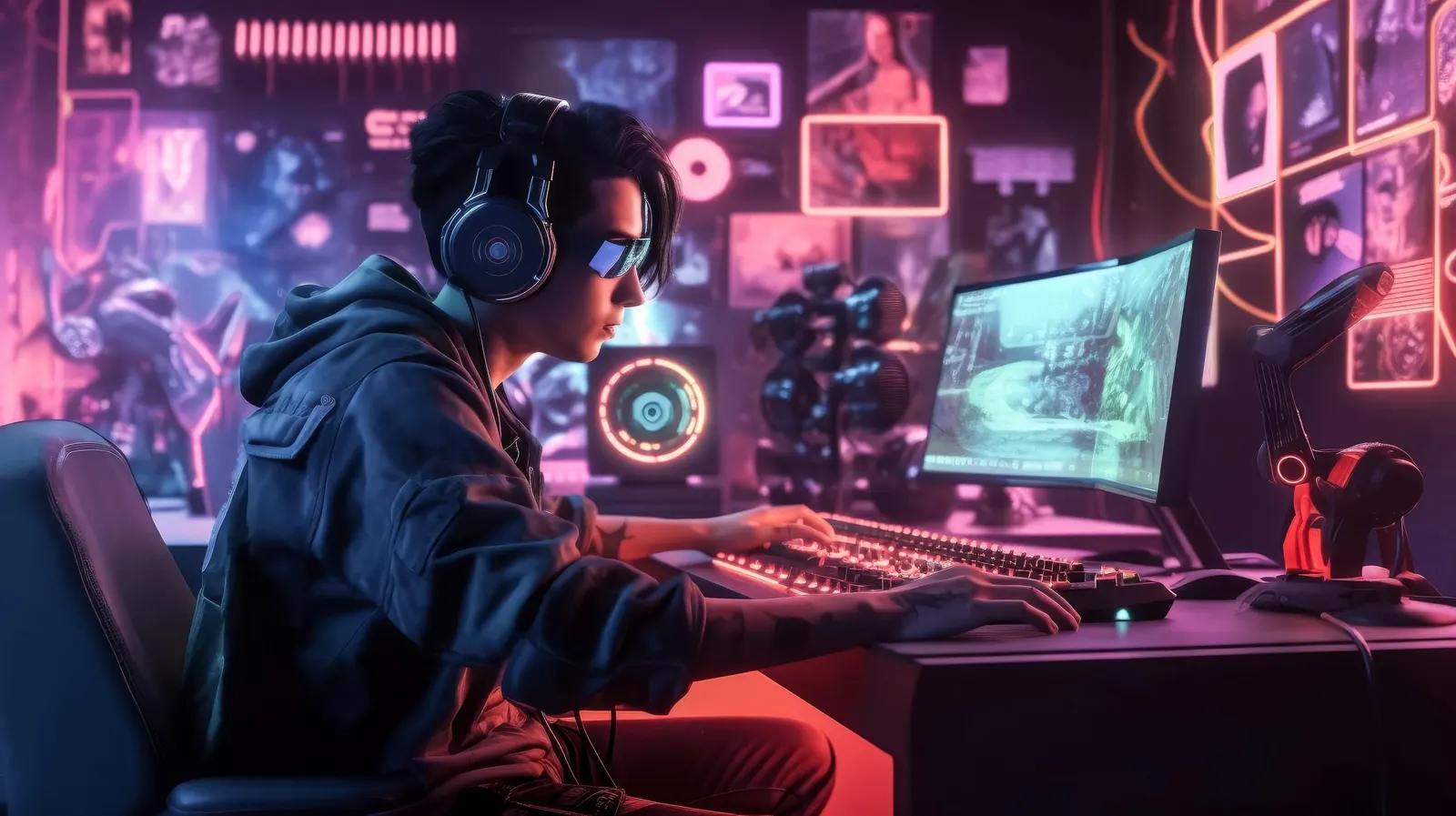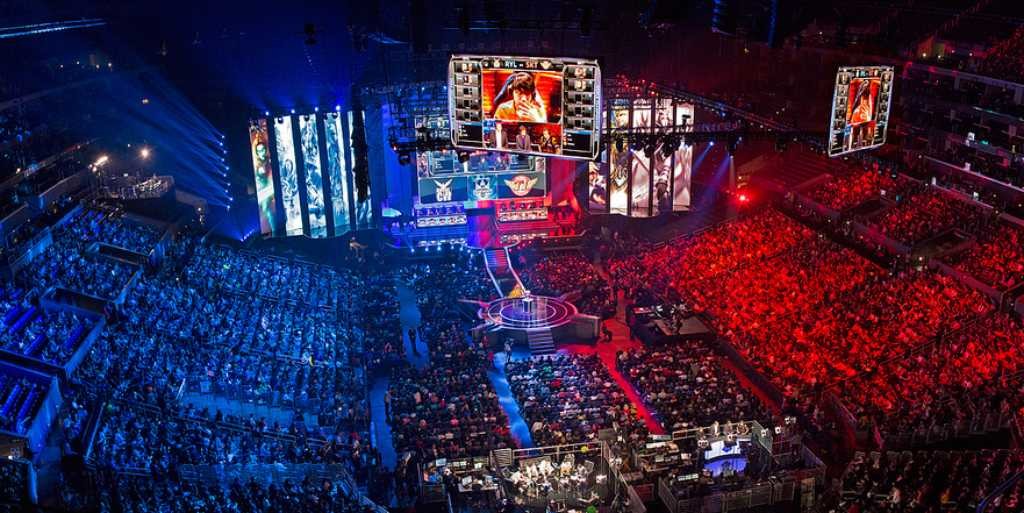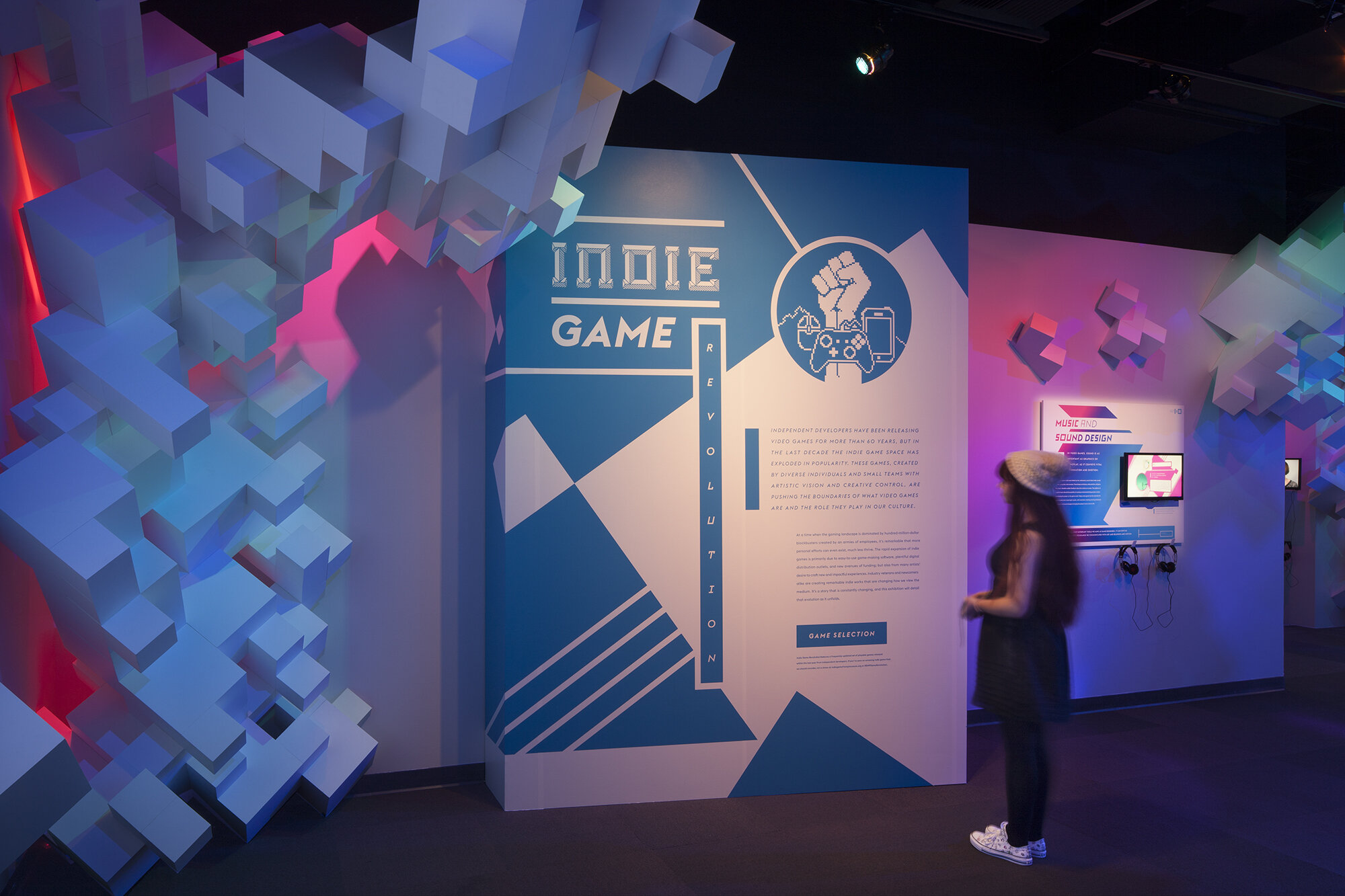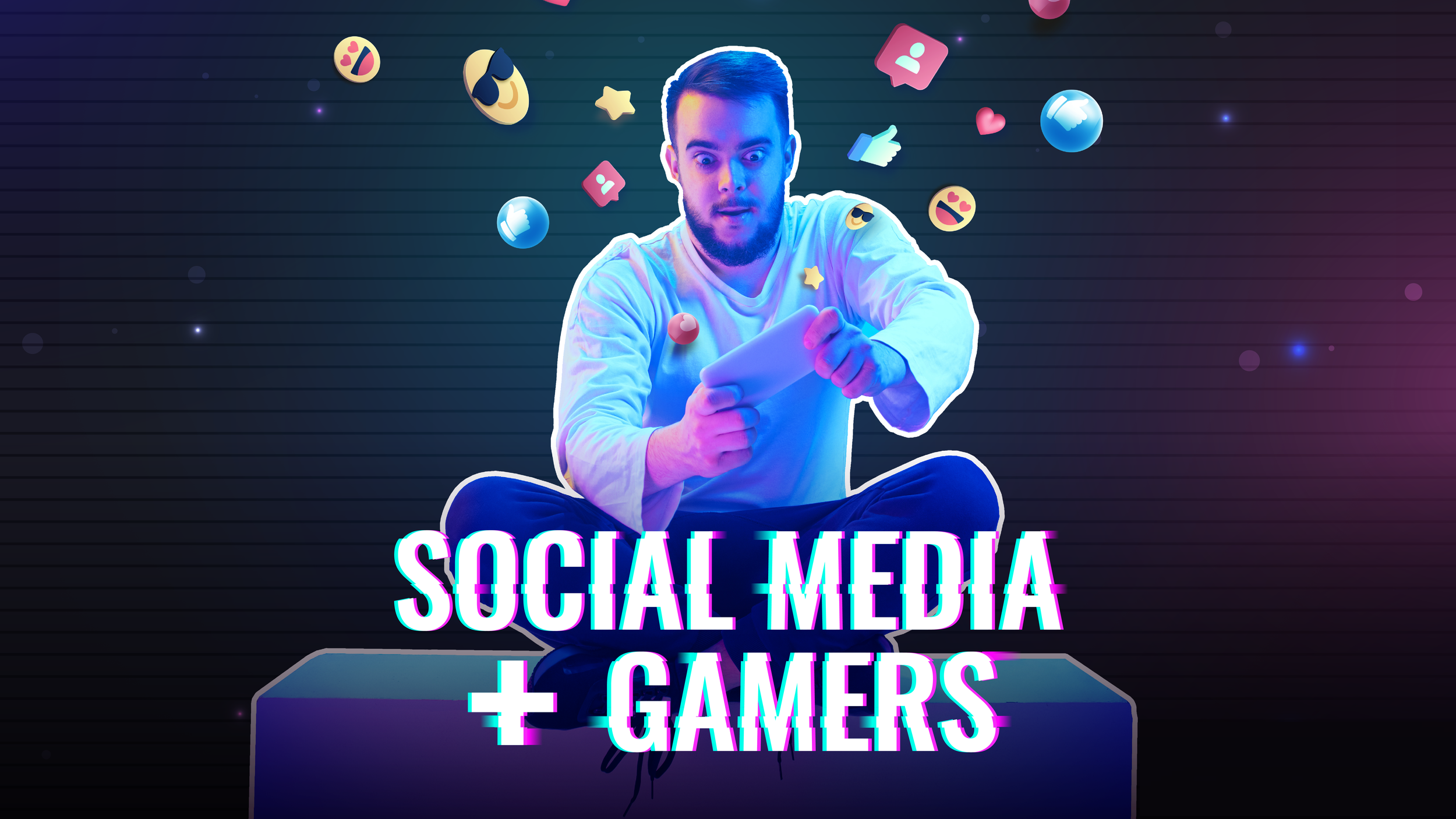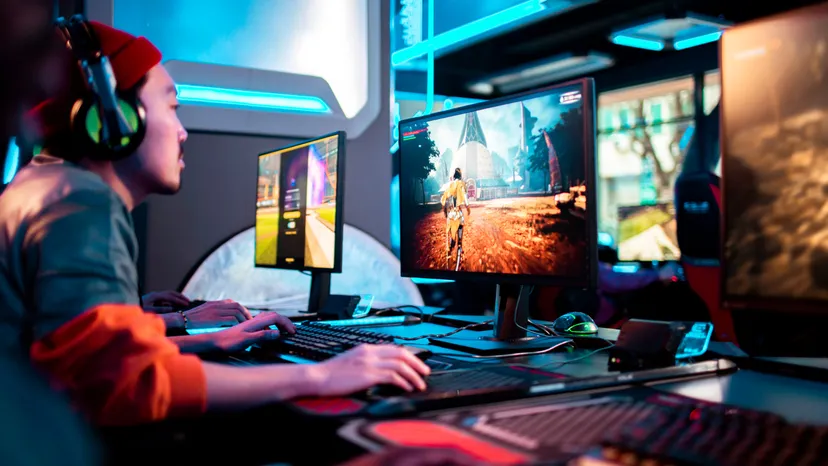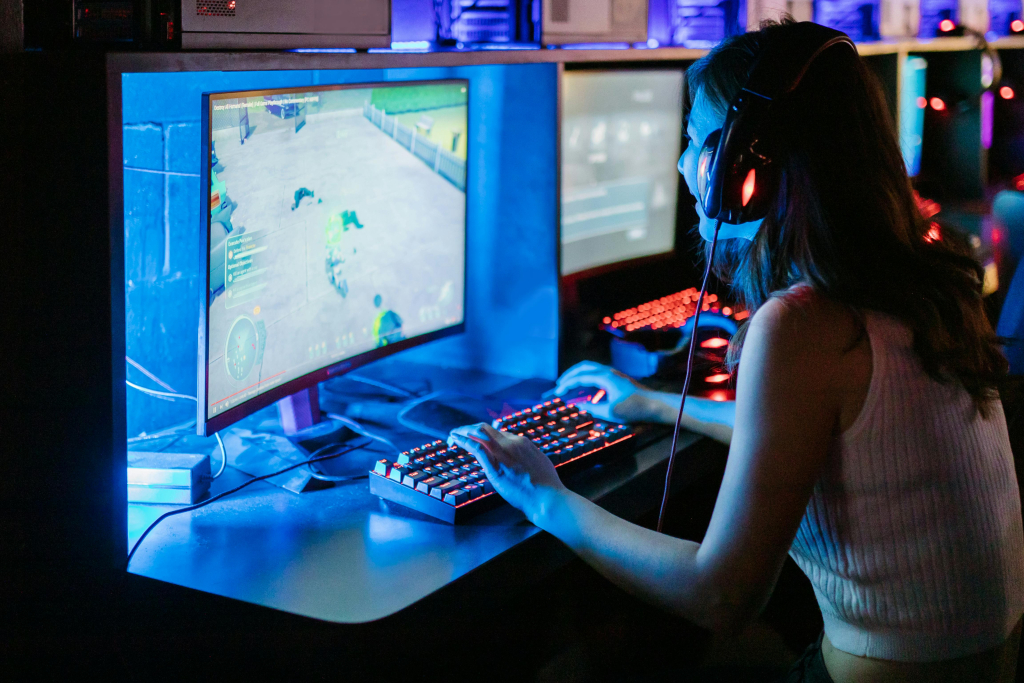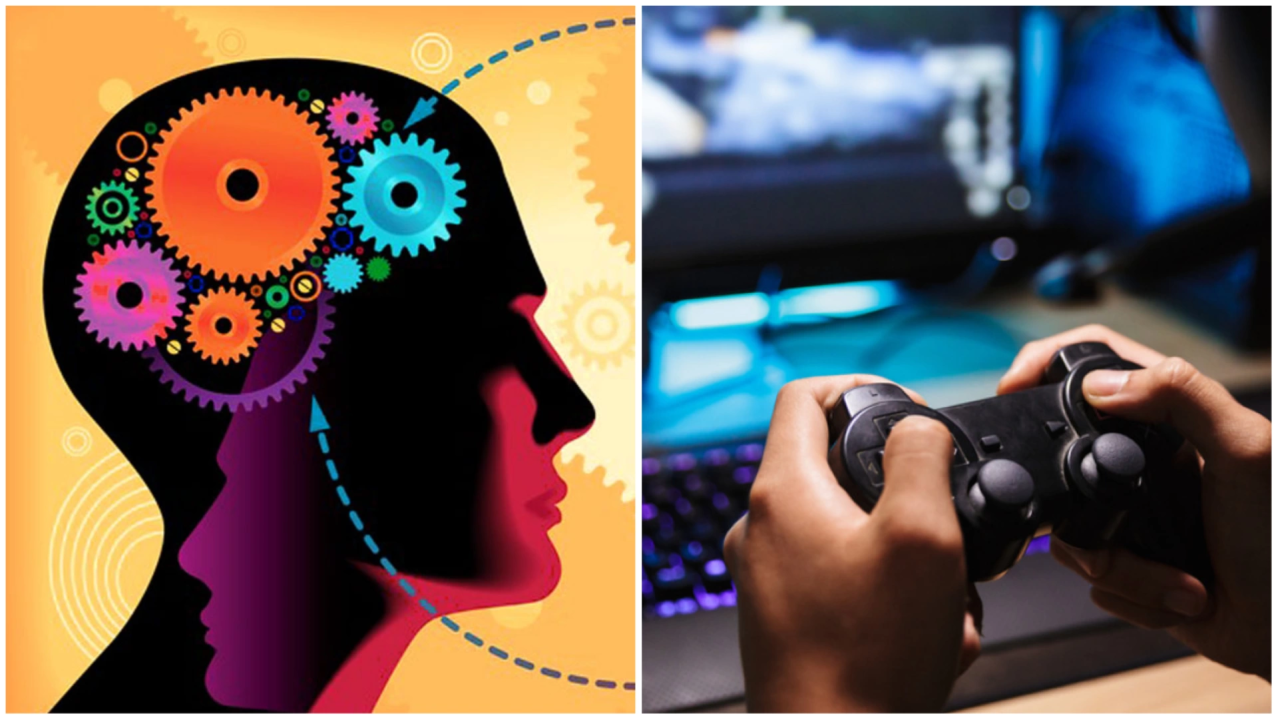13 Things That Made Gaming A Top Entertainment Choice In The Last Decade
"Explore how gaming became the ultimate entertainment choice in the last decade. From VR to eSports, discover the trends that reshaped an industry."
Author:Michael RachalReviewer:Finn WildeDec 13, 202428.1K Shares574.8K Views
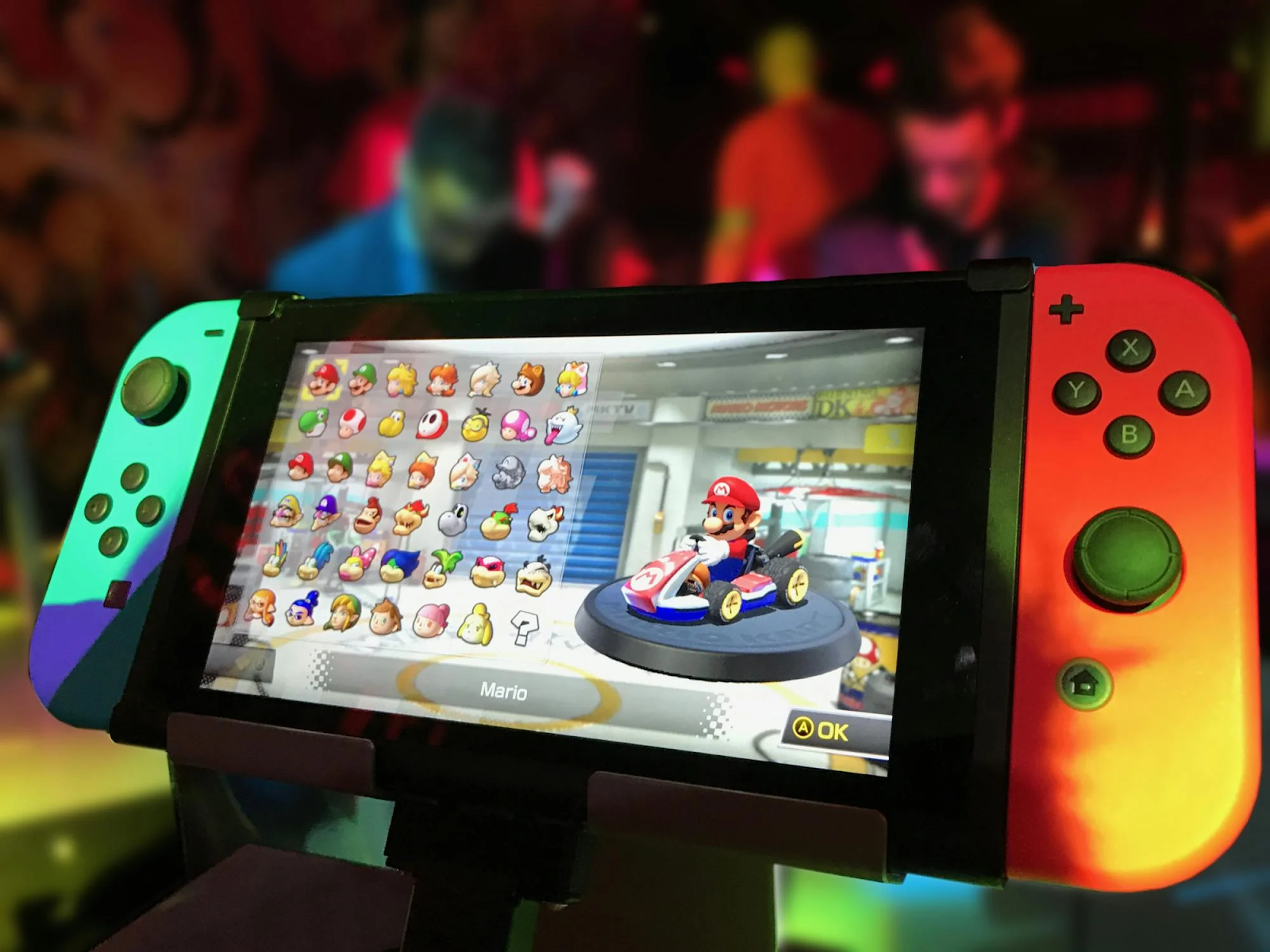
Gaming has experienced a remarkable evolution over the past decade, emerging as a dominant force in entertainment. Once seen as a niche activity, it has now captivated global audiences across various demographics, setting benchmarks for innovation and engagement.
Over the last ten years, gaming has reshaped how people interact, learn, and entertain themselves. By merging cutting-edge technology with unparalleled interactivity, it has become the entertainment medium of choice for millions.
1. Technological Advancements That Revolutionized Gaming
Gaming technology has advanced at an unprecedented pace, bringing players closer to virtual worlds than ever before. Virtual Reality (VR) and Augmented Reality (AR) have turned gaming into a sensory experience, allowing players to step into hyper-realistic environments. Popular devices like the Oculus Rift and PlayStation VR have made immersive gaming accessible to the masses.
Key technological breakthroughs include:
- 4K and 8K Graphics:High-resolution visuals that create lifelike environments.
- Ray Tracing Technology:Enhanced lighting and shadow effects for realism.
- Emergent AI:Adaptive in-game characters and storytelling mechanisms.
- Virtual and Augmented Reality:Immersive experiences with devices like Oculus Quest and AR integrations like Pokémon GO.
The resurgence of vintage gaming has also captivated audiences. Retro consoles like the Nintendo Classic Mini and games reimagined for modern platforms bring nostalgia while engaging new generations. These innovations highlight how gaming merges tradition with cutting-edge advancements.
2. The Birth And Growth Of ESports
The competitive gaming scene, or eSports, has evolved into a billion-dollar industry. Major tournaments like The International for Dota 2 and the League of Legends World Championship attract millions of viewers globally, rivaling traditional sports events in popularity and prize pools.
Platforms like Twitch and YouTube Gaming have fueled the growth of eSports by:
- Providing live-streaming capabilities for tournaments and personal gameplay.
- Enabling fans to follow professional players and teams in real time.
- Creating new revenue streams through sponsorships and advertising.
The Fortnite World Cup, with its $30 million prize pool, exemplifies how eSports have become mainstream, inspiring a new generation of competitive players.
3. Indie Gaming Revolution And Accessibility
The rise of indie games has democratized game development, offering platforms like Steam, Itch.io, and crowdfunding tools to creators. Games such as Papers, Please, Braid, and Fez have redefined what interactive storytelling and innovative gameplay can achieve. Tools like Unity and Game Maker have enabled small studios to compete with industry giants.
Key drivers of the indie gaming revolution:
- Crowdfunding Platforms:Kickstarter and Patreon have allowed creators to bring niche ideas to life.
- Distribution Networks:Steam and Itch.io make games accessible to global audiences.
- Affordable Tools:Development kits like Unity lower entry barriers for creators.
Simultaneously, mobile gaming has brought accessibility to the forefront. Mobile games like Candy Crush Saga, PUBG Mobile, and Genshin Impact have reached billions of players, breaking barriers of age, geography, and income. Free-to-play models with in-app purchases have democratized gaming, while app stores have simplified discovery.
4. Streaming Services And Subscription Models
The rise of subscription-based platforms like Xbox Game Pass and cloud gaming services such as Google Stadia and NVIDIA GeForce Now has transformed gaming consumption. These services eliminate the need for expensive hardware, offering high-quality gaming on demand.
Benefits of subscription and streaming services include:
- Affordability:Access to extensive libraries without purchasing individual titles.
- Accessibility:Play games on multiple devices without high-end hardware.
- Convenience:Streamlined updates and no physical storage requirements.
This shift has also enabled consistent revenue generation for developers, moving away from the traditional model of seasonal sales to year-round subscriptions.
5. Gaming As A Social Platform
Games have become virtual gathering spaces where players connect, collaborate, and compete. Titles like Fortnite, Minecraft, and Among Us are more than just games; they’re social experiences that bring people together.
Social gaming is enhanced by:
- Multiplayer Modes:Seamless matchmaking and cross-platform play.
- Community Tools:Platforms like Discord foster communication and camaraderie.
- In-Game Social Hubs:Virtual spaces for events, collaborations, and casual interactions.
Gaming’s social aspect has turned it into a cornerstone of modern interaction, rivaling traditional social media platforms.
6. Open-World Game Design And Player Agency
Open-world games like The Witcher 3 and Breath of the Wild have transformed level design into expansive playgrounds where players can explore, experiment, and interact freely. This philosophy encourages creativity, curiosity, and a deeper connection to the game world.
Features that enhance player agency include:
- Customizable Characters:Personalizing avatars in games like The Sims.
- Non-Linear Narratives:Choosing story paths in titles like Cyberpunk 2077.
- Creative Tools:Building worlds in Minecraft or designing levels in Super Mario Maker.
These innovations ensure that gaming experiences are as unique as the players themselves.
7. Cultural And Cross-Media Impact
Gaming has transcended its medium, influencing broader cultural landscapes. From exhibits at MoMA and the Victoria and Albert Museum to television shows like Westworld, video games are now recognized as a significant art form.
Examples of cross-media expansion include:
- Movies:Sonic the Hedgehog and Assassin’s Creed adaptations.
- Books and Comics:Expanding franchises like Halo through literature.
- Art Installations:Featuring games at prestigious museums and galleries.
These adaptations highlight gaming’s growing cultural relevance and artistic significance.
8. Expanding Representation And Demographics
The gaming industry has become more inclusive, reflecting diverse genders, ethnicities, and identities in its characters and narratives. Games like Overwatch and Life is Strange explore topics such as gender identity and mental health, giving voice to underrepresented communities.
Broader demographics in gaming include:
- Age Diversity:Gamers range from children to older adults.
- Global Reach:Expanding player bases in emerging markets like India and Africa.
- Gender Balance:Women now make up nearly 50% of the gaming audience.
This inclusivity has helped gaming become a universal medium, resonating with a wider audience.
9. Mental Health And Educational Benefits
Gaming is no longer just about entertainment. Educational games and apps have proven effective in teaching complex concepts in an engaging manner. Titles like Kerbal Space Program and Minecraft: Education Edition are used in classrooms worldwide.
Mental health benefits include:
- Stress Relief:Immersive games provide escapism and relaxation.
- Cognitive Improvement:Enhancing problem-solving and strategic thinking skills.
- Therapeutic Use:Helping individuals with rehabilitation and social skill development.
Studies affirm gaming’s potential as a tool for growth and well-being.
10. Pandemic’s Role In Accelerating Trends
The COVID-19 pandemic was a turning point for the gaming industry. With millions confined to their homes, gaming became a lifeline for social interaction and entertainment.
Key trends accelerated by the pandemic:
- Digital Storefronts:Increased reliance on platforms like Steam and Epic Games Store.
- Streaming Popularity:Rise in Twitch and YouTube Gaming viewership.
- Community Gaming:Social games like Animal Crossing: New Horizons became cultural phenomena.
The pandemic underscored gaming’s ability to adapt and thrive in challenging circumstances.
You Might Like: Here's How To Plan And Execute A Stress-Free Move
11. Casino Or Video Gaming - All Online
When cloud computing offered enormous capabilities for game developers, not only famous gaming options empowered with high-end features but also traditional games that had never been played on a computer screen, became a norm. The whole concept of casino gaming was revolutionized when different platforms introduced gambling games as a new way of digital entertainment.
If previously physical casinos were the home of slot games, now users’ blue screens hosted online video poker gameswith the same thrill as in casinos.This online iteration offered a distinct set of advantages, including the freedom of choice when it comes to the gaming place, time, etc.
Why only gamers?
Even developers felt the taste of freedom from the viewpoint of game creation when they got the whole creativity options of game design and decoration. The online migration isn't just about convenience and creative game variety.
Educational tools have democratized the world of video poker, allowing beginners access to sophisticated strategy guides and practice modes to hone their understanding of optimal play without risking a single penny. This supportive environment has lowered the barrier to entry, welcoming newcomers into the domain and fostering a growing community of video poker enthusiasts.
12. Accessibility Thorugh Smartphones
You know how smartphones changed everything? Well, they did the same for gaming. Before everyone had one, gaming was mostly something you kept yourself entertained with at home or maybe at the arcade. But once those little computers fit in our pockets, gaming broke out of its old boundaries.
It even seems crazy to think that according to a recent report, about 2 billion peoplewith smartphones now play games on them. That's a huge population! It shows just how much our phones have made gaming super attractive and accessible to everyone. And of course, the aforementioned number is expected to grow in the future years.This change totally shifted how people thought about games.
It's no longer this big thing you need a whole setup for. It became something woven into everyday life. Games made for phones really took off – short, fun, perfect for playing on the bus or waiting in line. Titles like Candy Crush, Angry Birds, and Pokémon GO went huge, and suddenly people who never thought of themselves as "gamers" were hooked.
13. The Entertainment Revolution Through Storytelling
While technological leaps expanded the possibilities of what a game could look like, a parallel revolution was taking place in how games were written. Developers started to realize that compelling narrativescould elevate games from mere diversions into experiences that could rival the emotional resonance of movies and books.
Suddenly, it wasn't just about flashy graphics or fast reflexes – games were about characters we grew attached to, difficult choices that made us think, and stories that stayed with us long after we logged off.Imagine the emotional shock from the opening sequence of The Last of Us, which had us controlling a panicked father in the middle of a zombie outbreak.
Or the moral dilemmas of the Mass Effect series, where our choices dictated galactic events and the fate of our companions. Games started to tackle mature and complex themes, exploring everything from grief and war to love and sacrifice
FAQs About The Evolution Of Gaming
How Has Gaming Technology Evolved In The Last Decade?
Gaming technology has seen significant advancements in VR, AR, and graphics, making games more immersive and lifelike than ever before.
Why Is Gaming Considered A Social Activity Now?
Modern games offer multiplayer modes, voice chat, and social platforms like Discord, turning gaming into a space for collaboration and connection.
What Role Did The Pandemic Play In Gaming’s Rise?
During the COVID-19 lockdowns, gaming provided a vital source of entertainment and social interaction, leading to a surge in sales and player engagement.
How Have ESports Changed Gaming?
The rise of eSports has turned gaming into a spectator sport with massive tournaments, live streams, and professional players earning global recognition.
What Are Some Mental Health Benefits Of Gaming?
Gaming has been shown to reduce stress, improve cognitive skills, and even aid in therapy and social skill development.
Conclusion
The last decade has been transformative for gaming, cementing its place as a dominant form of entertainment. From cutting-edge technology to the creation of global communities, gaming has proven to be more than just a pastime it is a cultural force.
As gaming continues to innovate, its influence will only grow. By serving as a tool for education, a medium for storytelling, and a platform for connection, gaming is shaping a future filled with endless possibilities.
Jump to
1. Technological Advancements That Revolutionized Gaming
2. The Birth And Growth Of ESports
3. Indie Gaming Revolution And Accessibility
4. Streaming Services And Subscription Models
5. Gaming As A Social Platform
6. Open-World Game Design And Player Agency
7. Cultural And Cross-Media Impact
8. Expanding Representation And Demographics
9. Mental Health And Educational Benefits
10. Pandemic’s Role In Accelerating Trends
11. Casino Or Video Gaming - All Online
12. Accessibility Thorugh Smartphones
13. The Entertainment Revolution Through Storytelling
FAQs About The Evolution Of Gaming
Conclusion

Michael Rachal
Author
Michael Rachal believes that luxury lies in the details. With over 20 years of experience in the luxury travel industry, he has crafted hundreds of bespoke itineraries for clients seeking personalized, unforgettable experiences.
Whether guiding clients through private cultural tours or curating culinary journeys with world-renowned chefs, Michael ensures that each trip is tailored to perfection.
His ability to anticipate needs and exceed expectations has earned him a reputation as a leading expert in luxury travel.

Finn Wilde
Reviewer
For Finn Wilde, the wilderness is more than just a destination - it’s a way of life. Over the past decade, he has led multiple expeditions in some of the world’s most remote regions, from the icy fjords of Greenland to the rugged trails of Patagonia.
Finn emphasizes sustainability in all of his adventures, helping participants connect with nature while promoting responsible exploration. His expeditions inspire individuals to explore the great outdoors while fostering a deep respect for the environment.
Latest Articles
Popular Articles
